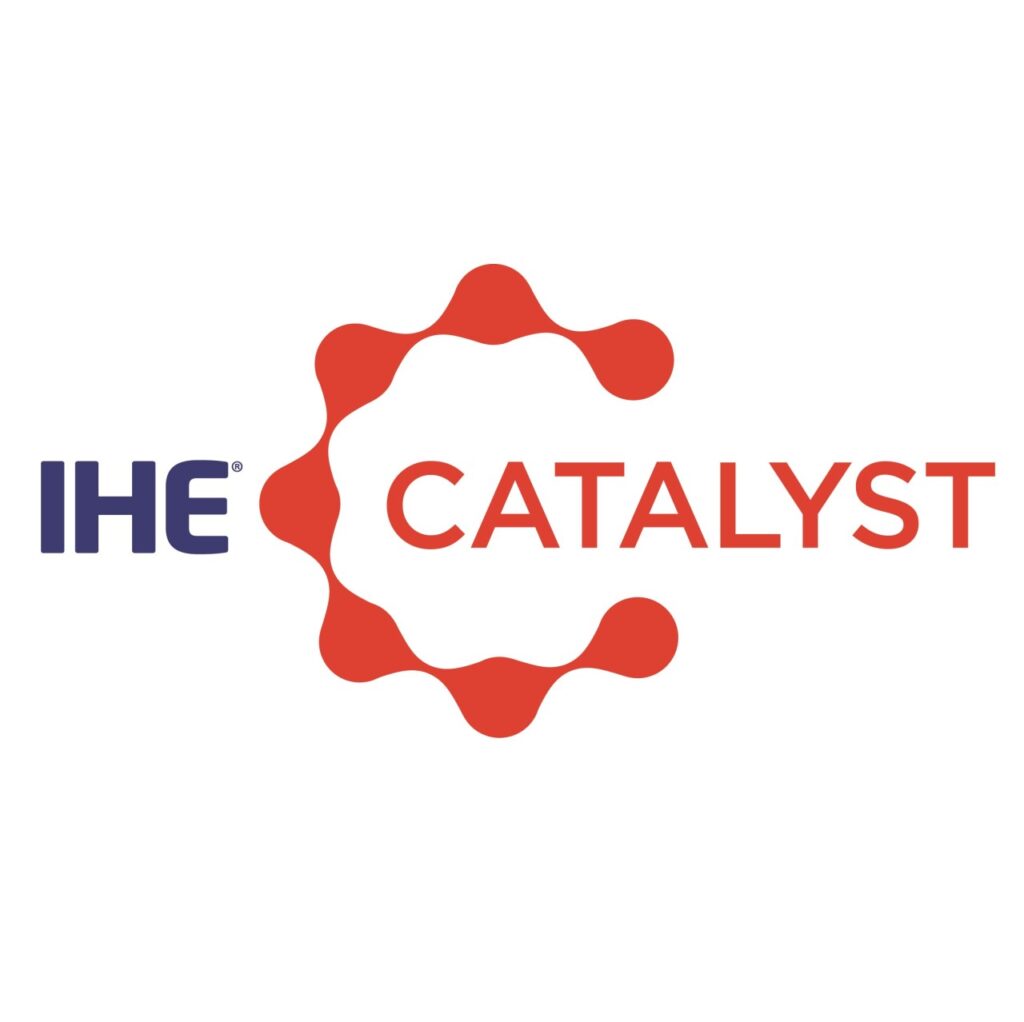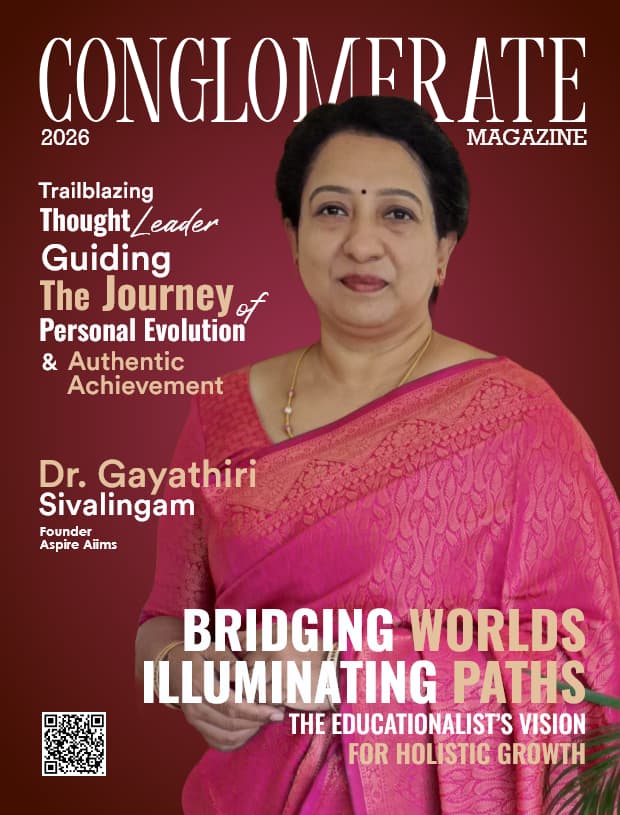In the complex ecosystem of global healthcare, where fragmented systems often prevent critical patient information from flowing seamlessly between providers, one leader has dedicated over three decades to building the digital bridges that connect care across continents. Dr. Alexander Berler stands as a testament to the power of collaborative innovation, having transformed from a biomedical engineering student in the 1990s into one of Europe’s most influential voices in healthcare interoperability.
His journey began with a simple yet profound realization during his PhD research: healthcare’s greatest challenge wasn’t just technological, but human. While designing a standards-based regional health information system for the Greek public sector, Alexander discovered that true healthcare transformation required more than elegant code or sophisticated algorithms. It demanded bringing together diverse communities of healthcare providers, patients, regulators, and technology vendors around a shared vision of connected care.
“My passion is driven by providing practical and sustainable solutions of digital healthcare innovation,” Alexander reflects on his driving force. “I was always inspired delivering things that can work. In practice.”
This practical idealism would shape every milestone in his remarkable career, from co-founding HL7 Hellas in 2003 to his current role steering global interoperability initiatives that span from European regulatory frameworks to Latin American healthcare highways.
The Foundation Years: Building Community Through Standards
Alexander’s formative moment came not in a boardroom or laboratory, but in the collaborative spaces where healthcare professionals, technologists, and patient advocates gathered to solve shared challenges. His contribution to creating HL7 Hellas, the Greek affiliate of the international health information standards organization, marked his first deep dive into the complex world of healthcare standardization.

“This was the first encounter with standardisation and interoperability,” he recalls of that pivotal 2003 moment. What started as a technical initiative quickly evolved into something far more significant: a community-building exercise that would define his approach to healthcare transformation for decades to come.
The decision to join Gnomon Informatics in 2006 represented a strategic alignment of vision and opportunity. Alexander had envisioned a fundamental shift in healthcare technology, moving “gradually from Healthcare professional driven IT systems to Patient driven solutions.” This wasn’t just about changing software interfaces; it was about reimagining the entire relationship between patients and their health information.
Today, after more than a decade of focused investment, Gnomon Informatics has developed what Alexander proudly describes as “one of the most standard based patient driven solutions on the market,” built on IHE profiles and HL7 FHIR specifications that enable true interoperability.
Mastering The Art Of Collaborative Innovation
Alexander’s approach to healthcare innovation centers on what he calls “collaborative co-creation,” a methodology he discovered at IHE, and refined through his work with Integrating the Healthcare Enterprise (IHE). This approach brings together user communities including healthcare providers, patient associations, medical societies, governments, and regulators with vendor communities encompassing startups, investment funds, software vendors, and academic institutions.
“It seems that this approach of collaborative co-creation approach to create interoperability use cases that are based on real life end to end healthcare operations, to match them with specific high quality standards such as HL7, W3C, DICOM, ETSI, SNOMED and other, to create specifications that can be tested and validated before being deployed into real life systems, have highly increased both implementation project success, and better delivery of healthcare at the end,” Alexander explains.
This methodology proved its value through numerous high-impact projects, including his work on telemedicine systems that move telemonitoring data from ambulances to emergency departments, the implementation of regional health information systems in Greece, and his contribution to the Greek ePrescription interoperability layer now in full production nationwide.
Navigating Resistance: The Human Side Of Healthcare Transformation
One of Alexander’s most valuable insights comes from his recognition that healthcare’s resistance to change often stems from legitimate concerns rather than mere stubbornness. “As healthcare has never been a greenfield market, there is a big resistance of the end users, mostly the healthcare professionals that are reluctant sometimes to adopt new processes, new technologies,” he observes.
Rather than viewing this resistance as an obstacle, Alexander has learned to see it as valuable feedback from those closest to patient care. His approach involves patient, persistent community building that addresses real concerns while maintaining focus on improved patient outcomes.
The complexity of healthcare markets, with their “well-established monopolies, regulation complexity and of course financial lobby constraints,” requires what Alexander describes as a step-by-step approach where “a lot of compromises have to be taken to advance digital healthcare transformation.”
His ability to navigate these challenges while maintaining his vision for global interoperability has been instrumental in suporting major initiatives like the European Electronic Health Record Exchange Format (EEHRxF), now part of the European Health Data Space regulation (EHDS) since March 26, 2025.
Pandemic Lessons: Accelerating Global Health Cooperation
The COVID-19 pandemic provided both validation of Alexander’s vision and stark evidence of the work still to be done. “The COVID pandemic has proven how bad we manage quality of healthcare information at the global scale,” he reflects. “It revealed also how bureaucratic healthcare processes are.”
However, rather than seeing this as a setback, Alexander viewed the pandemic as a catalyst for the kind of global cooperation he had been advocating for years. The crisis “enormously increased consensus building in the European Union and Latin America regions,” creating unprecedented alignment around the need for interoperable health systems.
This momentum has translated into concrete progress on initiatives like the WHO Global Health Digital Certification Network and expanded adoption of international patient summary specifications across multiple continents.
Leadership Philosophy: Empowering Teams For Collective Success
Alexander’s leadership philosophy centers on creating environments where team members can contribute their unique strengths toward shared goals. “Leadership is about listening to others, organise teams and give value to all the members of the team,” he explains. “Leadership is not about imposing a strategy but about making the team that will deliver the strategy where everybody is contributing and recognised for his/her contribution.”
This approach has proven particularly effective in the healthcare interoperability space, where success requires coordination across diverse stakeholder groups with different priorities, languages, and organizational cultures. Alexander’s ability to build “teams that believe in themselves and understand and believe in the common goals” has been crucial in advancing complex multinational initiatives.
His advice to emerging leaders reflects this collaborative mindset: “Go with the flow to learn at the initial steps, then never fear to propose and go out of your comfort zone. We build our own future so we have to create it!”
Technology Vision: Balancing Innovation With Human Values
As artificial intelligence and connected medical devices reshape healthcare possibilities, Alexander maintains a balanced perspective that embraces technological potential while prioritizing human values. “We can now with the use of technology, networking, high performance computing, AI algorithms, Machine learning and many more deliver safer, faster and more accurate healthcare services,” he notes.
However, his vision extends beyond technological capabilities to encompass broader social determinants of health. He recognizes that “health information is in practice everywhere,” including factors like “where we live, what we eat, if we are stressed, the quality of air and food” that all influence wellbeing.
This holistic view informs his work on patient-driven solutions that give individuals greater control over their health information while enabling healthcare providers to deliver more personalized, effective care.
Global Impact: Building Highways For Health
Alexander’s current focus on creating standard based global data highways for healthcare, represents the culmination of decades of experience in healthcare interoperability. His work spans from the European Health Data Space in Europe to the Latin America and Caribbean Pan-American Highways for Health, with the ultimate goal of connecting these regional initiatives into a truly global framework.
“I would say that connecting the European vision of the EHDS and the Latin America and Caribbean Pan American Highways for health on a common set of use cases and specification could create in the next few years a community of early adopters that can create services at the global scale,” he explains.
This vision requires what Alexander calls “having the big picture in mind but working in a step by step (use case driven) approach,” a methodology that has proven successful across multiple international initiatives.
Addressing Urgent Healthcare Needs
While Alexander’s work touches all aspects of healthcare, he identifies several areas requiring urgent attention and innovation. “All process and areas of healthcare are important,” he notes, “There are though some domains that need more attention such as rare disease management, cancer treatment, and epidemiology to prevent another pandemic to happen.”
His commitment to these challenging areas reflects his broader philosophy that healthcare innovation should serve humanity’s most pressing needs rather than simply pursuing technological novelty.
Building Sustainable Infrastructure: The Laboratory Network
One of Alexander’s key priorities involves creating a global network of interoperability laboratories that can test and validate healthcare technology solutions before implementation. Using IHE‘s open-source Gazelle testing tools, these laboratories provide crucial infrastructure for “promoting and testing new ideas, services and systems.”
This approach addresses one of healthcare technology’s persistent challenges: the gap between promising demonstrations and reliable production systems. By “promoting testing before implementation,” Alexander’s laboratory network helps ensure that interoperability solutions actually work in real-world healthcare environments.
Family and Global Impact: Balancing Personal And Professional Commitments
Alexander’s global work requires extensive travel and collaboration across time zones, creating challenges for maintaining work-life balance. He acknowledges this tension with characteristic gratitude: “Working at the global scale have a lot of challenges concerning traveling, building a happy family. I am immensely grateful to my wife and children for supporting me all these years in this process. Would have not made without them.”
This personal acknowledgment reflects the human dimension of global healthcare transformation, recognizing that sustainable change requires not just technical expertise but also strong personal support systems.
Innovation Mindset: Staying Ahead Of Rapid Change
In an industry characterized by rapid technological evolution, Alexander maintains his edge through active participation in creating new trends rather than simply following them. “One way of staying ahead of the trends is to contribute to their creation and this what we do at IHE Catalyst,” he explains.
This proactive approach involves continuously listening to emerging needs and services, then working to “streamline them and support their path to implementation and adoption.” The challenge lies in expediting testing and validation processes to keep pace with technological advancement while maintaining quality standards.
Legacy Vision: Collaboration Over Individual Recognition
When asked about his hoped-for legacy, Alexander’s response reflects his collaborative values: “I do not really feel the need to be remembered. We all hope that our path and career has served a purpose for the global goods that promote humanity as whole.”
His specific hopes center on widespread adoption of IHE processes, testing methodologies, and collaborative approaches that “stop reinventing the wheel in digital healthcare transformation” while delivering “more value to citizens and patients’ communities.”
Future Priorities: Scaling Successful Methodologies
Alexander’s priorities for the coming years focus on scaling proven approaches to global reach. His goals include promoting “the creation of as many interoperability labs as possible,” advancing “global EHR specifications such as the international patient summary,” and fostering “stakeholder engagement and co-creation processes.”
These priorities reflect his belief that sustainable healthcare transformation requires robust infrastructure, proven standards, and strong community engagement rather than technological solutions alone.
The Human Dimension Of Healthcare Innovation
At the heart of Alexander’s work lies a fundamental belief in healthcare as an expression of human values. “Healthcare innovation comes with positive thinking that can makes our lives better and more meaningful,” he reflects.
This perspective shapes his continued motivation: “I believe that we need to invest ourselves on the positive outcomes of humanity principles. And healthcare is, by definition, a sector where humanity, caring for others and quality of life are important.”
A Vision For Unified Global Health
Alexander’s ultimate vision involves creating unified global health systems that transcend geographic, religious, ethnic, and financial boundaries. His work toward “a global EHR initiative that integrates all the above-mentioned initiative into one global trend” represents perhaps the most ambitious goal in healthcare interoperability.
This vision requires what he calls “more collaboration, team work and a focus on delivering more for better quality of life for all people. Together we are stronger.”
The Enduring Impact Of Principled Innovation
Dr. Alexander Berler’s career demonstrates that sustainable healthcare transformation requires more than technical expertise or business acumen. It demands the ability to build communities, navigate complex stakeholder relationships, and maintain focus on human values while pursuing ambitious technological goals.
His influence extends far beyond individual projects or organizations to shape the fundamental approaches used for healthcare interoperability worldwide. Through his work with standards organizations, his leadership of testing laboratories, and his mentorship of emerging leaders, Alexander has created infrastructure and methodologies that will continue enabling healthcare innovation for decades to come.
As healthcare systems worldwide grapple with aging populations, emerging diseases, and the promise of artificial intelligence, leaders like Alexander provide essential guidance on maintaining human-centered values while embracing technological possibilities. His example shows that the most transformative innovations emerge not from isolated brilliance but from patient, persistent community building around shared visions of better care for all.
The future of global healthcare will be shaped by the bridges Alexander and his colleagues have built connecting technical standards with human needs, regional initiatives with global vision, and individual innovations with collective impact. His career provides a roadmap for achieving transformation that serves not just technological advancement but the fundamental human values that make healthcare meaningful.








